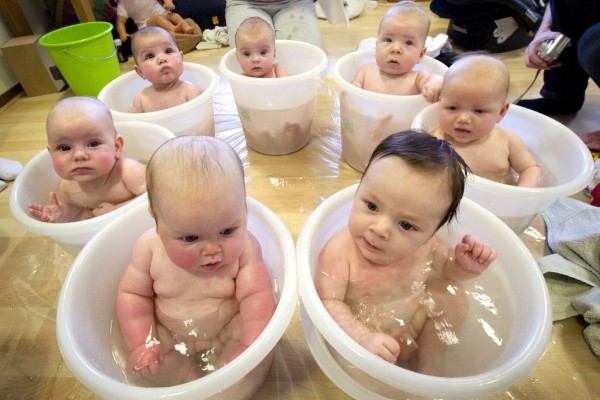White Babies Racially Bias When Choosing Playmates

Even babies show racial bias when it comes to picking friends to play with.
A new study of 15-month-olds looked at how Caucasian kids reacted when toys were distributed, and how they reacted to fairness.
The study consisted of two white adults dividing the toys. One adult divided it equally, while the other divided them unequally.
The study revealed that most toddlers were fair, with 70 percent of toddlers choosing to play with the researcher who distributed the toys fairly.
However, in another experiment where adults favored white recipients over Asian ones, white 15-month-olds were less likely to pick the "fair" researcher.
The study also revealed that babies are more likely to help others of the same ethnicity. Researchers said this phenomenon is known as "in-group bias" where people prefer others who have similar characteristics.
Researchers said the started noticing the effect after they saw babies playing favorites with researchers during another experiment.
"At the time, about half of the research assistants in my lab were Asian-American and the other half were Caucasian, and most of the babies in our experiments are Caucasian," Professor Jessica Sommerville of the University of Washington said in a news release.
"We know that by preschool, children show in-group bias concerning race, but results in infants have been mixed," added Sommerville. "It's surprising to see these pro-social traits of valuing fairness so early on, but at the same time, we're also seeing that babies have self-motivated concerns too."
The findings show that white babies seemed to be more willing to put up with unfairness when the white recipient benefited from it. The study found that white babies picked the fair experimenter less often when the unfair experimenter gave more toys to the white recipient rather than the Asian one.
Researchers said the findings show that babies can account for race and social history when making a decision.
"If all babies care about is fairness, then they would always pick the fair distributor, but we're also seeing that they're interested in consequences for their own group members," added Sommerville.
The findings were published in the journal Frontiers in Psychology.
Apr 16, 2014 05:06 PM EDT





